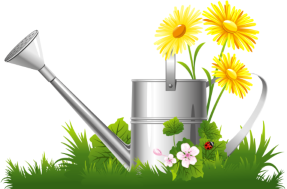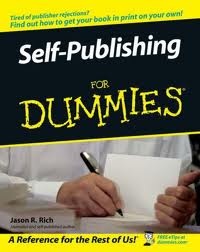A baker’s dozen promising new titles.

Thousands of books are published each month. And as much as we’d like to, we can’t read (or review) them all. But what we can do is point out a few we think you might enjoy. In that spirit, here’s a rundown of forthcoming titles that caught our eye and may catch yours, too.
 Skin: Stories by Catherine Bush (Goose Lane Editions). What does it mean to crave and pursue intimacy in our increasingly fraught, hostile world? This edgy, speculative collection ponders some of the answers to that question.
Skin: Stories by Catherine Bush (Goose Lane Editions). What does it mean to crave and pursue intimacy in our increasingly fraught, hostile world? This edgy, speculative collection ponders some of the answers to that question.
 Unearthing Forgotten Values: Toward a Meaningful Archaeological Practice by Sean P. Connaughton (Purich Books). When the private sector — i.e., big business — is the driver behind most of the world’s archaeological activity, it’s Indigenous communities that tend to pay the price.
Unearthing Forgotten Values: Toward a Meaningful Archaeological Practice by Sean P. Connaughton (Purich Books). When the private sector — i.e., big business — is the driver behind most of the world’s archaeological activity, it’s Indigenous communities that tend to pay the price.
 The Fact Checker: A Novel by Austin Kelley (Atlantic Monthly Press). A minor story about tomatoes in a New York City farm market turns into a major worry when the reporter who wrote it disappears.
The Fact Checker: A Novel by Austin Kelley (Atlantic Monthly Press). A minor story about tomatoes in a New York City farm market turns into a major worry when the reporter who wrote it disappears.
 Apostle of Liberation: AME Bishop Paul Quinn and the Underground Railroad by Cheryl Janifer LaRoche (Rowman & Littlefield). Meet a little-known 19th-century missionary who both ministered to the enslaved and helped them navigate their post-Civil War freedom.
Apostle of Liberation: AME Bishop Paul Quinn and the Underground Railroad by Cheryl Janifer LaRoche (Rowman & Littlefield). Meet a little-known 19th-century missionary who both ministered to the enslaved and helped them navigate their post-Civil War freedom.
 Lloyd McNeil’s Last Ride: A Novel by Will Leitch (Harper). A cop with an inoperable brain tumor decides to go out in a blaze of glory in hopes of providing for his son, but his plans fail again and again.
Lloyd McNeil’s Last Ride: A Novel by Will Leitch (Harper). A cop with an inoperable brain tumor decides to go out in a blaze of glory in hopes of providing for his son, but his plans fail again and again.
 How Things Are Made: A Journey Through the Hidden World of Manufacturing by Tim Minshall (Ecco). Where do the raw materials for items you buy come from? Who turns them into parts and assembles them? And how do they reach the stores where you shop?
How Things Are Made: A Journey Through the Hidden World of Manufacturing by Tim Minshall (Ecco). Where do the raw materials for items you buy come from? Who turns them into parts and assembles them? And how do they reach the stores where you shop?
 Heaven Looks Like Us: Palestinian Poetry, edited by George Abraham and Noor Hindi (Haymarket Books). An array of poets — including Lena Khalaf Tuffaha, Mahmoud Darwish, Naomi Shihab Nye, and Fady Joudah — explore colonialism, violence, and occupation in this searing ode to a dispossessed people.
Heaven Looks Like Us: Palestinian Poetry, edited by George Abraham and Noor Hindi (Haymarket Books). An array of poets — including Lena Khalaf Tuffaha, Mahmoud Darwish, Naomi Shihab Nye, and Fady Joudah — explore colonialism, violence, and occupation in this searing ode to a dispossessed people.
 The Elephant in the Room: How to Stop Making Ourselves and Other Animals Sick by Liz Kalaugher (University of Chicago Press). We blame critters for spreading exotic diseases but often overlook how humans greatly increase the danger by destroying their natural habitats, crowding species, and, yes, changing the climate.
The Elephant in the Room: How to Stop Making Ourselves and Other Animals Sick by Liz Kalaugher (University of Chicago Press). We blame critters for spreading exotic diseases but often overlook how humans greatly increase the danger by destroying their natural habitats, crowding species, and, yes, changing the climate.
 One Level Down by Mary G. Thompson (Tachyon Publications). What happens when a woman forced to inhabit a child’s body for six decades grows increasingly determined to take control of her life? Her “Daddy” — the villainous creator of the simulated colony-planet she lives on — is about to find out.
One Level Down by Mary G. Thompson (Tachyon Publications). What happens when a woman forced to inhabit a child’s body for six decades grows increasingly determined to take control of her life? Her “Daddy” — the villainous creator of the simulated colony-planet she lives on — is about to find out.
 Three Guesses by Chris McClain Johnson (Regal House Publishing). Three strangers from different parts of the country have one thing in common: a painting called Three Guesses. Solely through the mail, they share stories and secrets. Seven years later, they finally meet to explore how their unusual link might help each of them.
Three Guesses by Chris McClain Johnson (Regal House Publishing). Three strangers from different parts of the country have one thing in common: a painting called Three Guesses. Solely through the mail, they share stories and secrets. Seven years later, they finally meet to explore how their unusual link might help each of them.
 Bad Company: Private Equity and the Death of the American Dream by Megan Greenwell (Dey Street Books). Being sold to private-equity investors can reward a struggling company’s original investors but make things much worse for employees and customers. Too bad it’s happening to newspapers, medical facilities, retail stores, and even municipal water systems.
Bad Company: Private Equity and the Death of the American Dream by Megan Greenwell (Dey Street Books). Being sold to private-equity investors can reward a struggling company’s original investors but make things much worse for employees and customers. Too bad it’s happening to newspapers, medical facilities, retail stores, and even municipal water systems.
 Nature’s Greatest Success: How Plants Evolved to Exploit Humanity by Robert N. Spengler III (University of California Press). Do those towering cornstalks populate America’s farmland because we forced them to, or are they actually glad to see us?
Nature’s Greatest Success: How Plants Evolved to Exploit Humanity by Robert N. Spengler III (University of California Press). Do those towering cornstalks populate America’s farmland because we forced them to, or are they actually glad to see us?
 Empty Cages: A Novel by Fatma Qandil; translated by Adam Talib (Hoopoe). In this winner of the Naguib Mahfouz Medal for Literature, an empty candy tin is the jumping-off point for a tale of family secrets, heartache, and the power of memory.
Empty Cages: A Novel by Fatma Qandil; translated by Adam Talib (Hoopoe). In this winner of the Naguib Mahfouz Medal for Literature, an empty candy tin is the jumping-off point for a tale of family secrets, heartache, and the power of memory.

